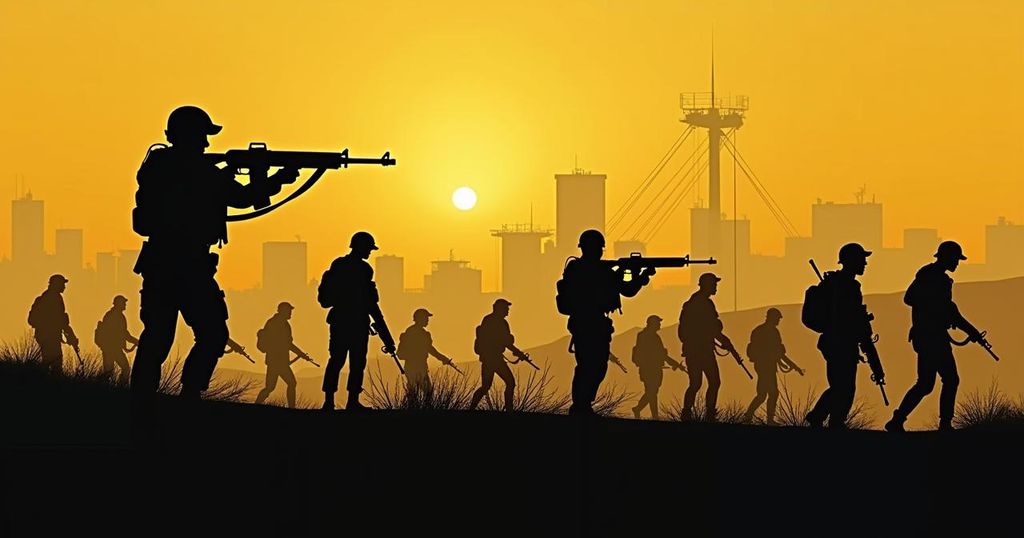Israeli Prime Minister Benjamin Netanyahu, during his address at the UN General Assembly, reaffirmed Israel’s commitment to degrading Hezbollah until its objectives are achieved. His remarks came amidst increasing violence in the Middle East and criticism from world leaders regarding Israel’s military actions in Lebanon and Gaza. Netanyahu emphasized Israel’s right to defend itself and signaled an ongoing military campaign while dismissing calls for immediate ceasefire, insisting on the necessity of total victory against his adversaries.
During his address at the United Nations General Assembly on September 27, 2024, Israeli Prime Minister Benjamin Netanyahu firmly asserted Israel’s commitment to degrading Hezbollah until its objectives are fully realized along the Lebanon border. Despite initial intentions to forgo attendance, Netanyahu felt compelled to respond to what he termed as “the lies and slanders” against Israel. Amidst ongoing conflicts in the Middle East and growing violence from Hezbollah, Netanyahu’s speech elicited diverse reactions from global leaders. Notably, leaders from Slovenia, Barbados, and Pakistan criticized the escalating violence, emphasizing the need for peace. Netanyahu reiterated Israel’s right to defend itself, emphasizing that the nation will persist in its operations against Hezbollah and Hamas, asserting, “We will continue degrading Hezbollah until all our objectives are met.” He underscored the serious implications of Iran’s involvement in regional instability and declared Israel’s resolve in combating threats from both Hezbollah and Hamas, asserting the necessity of Israel’s military responses to ongoing aggressions. The backdrop of Netanyahu’s address was marked by intensified military actions in Lebanon, with Israeli strikes aimed at Hezbollah’s infrastructure leading to increasing casualties. Netanyahu defended Israel’s military strategy amid criticisms from various corners, contending, “This war can come to an end now. All that has to happen is for Hamas to surrender… But if they don’t – if they don’t – we will fight until we achieve total victory. Total victory. There is no substitute for it.” The speech resonated amid calls for ceasefire from the United States and France; however, Netanyahu’s statements maintained a tone of defiance against perceived threats, both from militant groups and from Iran.
The ongoing geopolitical tension in the Middle East has become increasingly complex, particularly in relation to the conflicts involving Israel, Hezbollah, and Hamas. Israel has faced significant military challenges on multiple fronts, most notably regarding Hezbollah’s sustained aggressions along the Lebanon border following Hamas’s initial attack on October 7, which prompted retaliatory actions. Recent data illustrates a high casualty rate among civilians in Gaza, contributing to a volatile environment where international diplomatic efforts are challenged by ongoing hostilities. The discourse at the United Nations is often reflective of these tensions, with leaders addressing the urgent need for peace and stability, juxtaposed with calls for military action from those in power.
Prime Minister Netanyahu’s address at the United Nations underscored Israel’s unyielding stance on military operations against Hezbollah and Hamas amidst ongoing violence in the Middle East. His remarks highlighted the complex interplay of defense, national objectives, and international condemnation, emphasizing the ongoing struggle for stability in the region. The call for continued military engagement reveals Israel’s strategic priorities while the reactions of other world leaders illustrate the broader desire for resolution and peace in a conflict-ridden landscape.
Original Source: apnews.com






